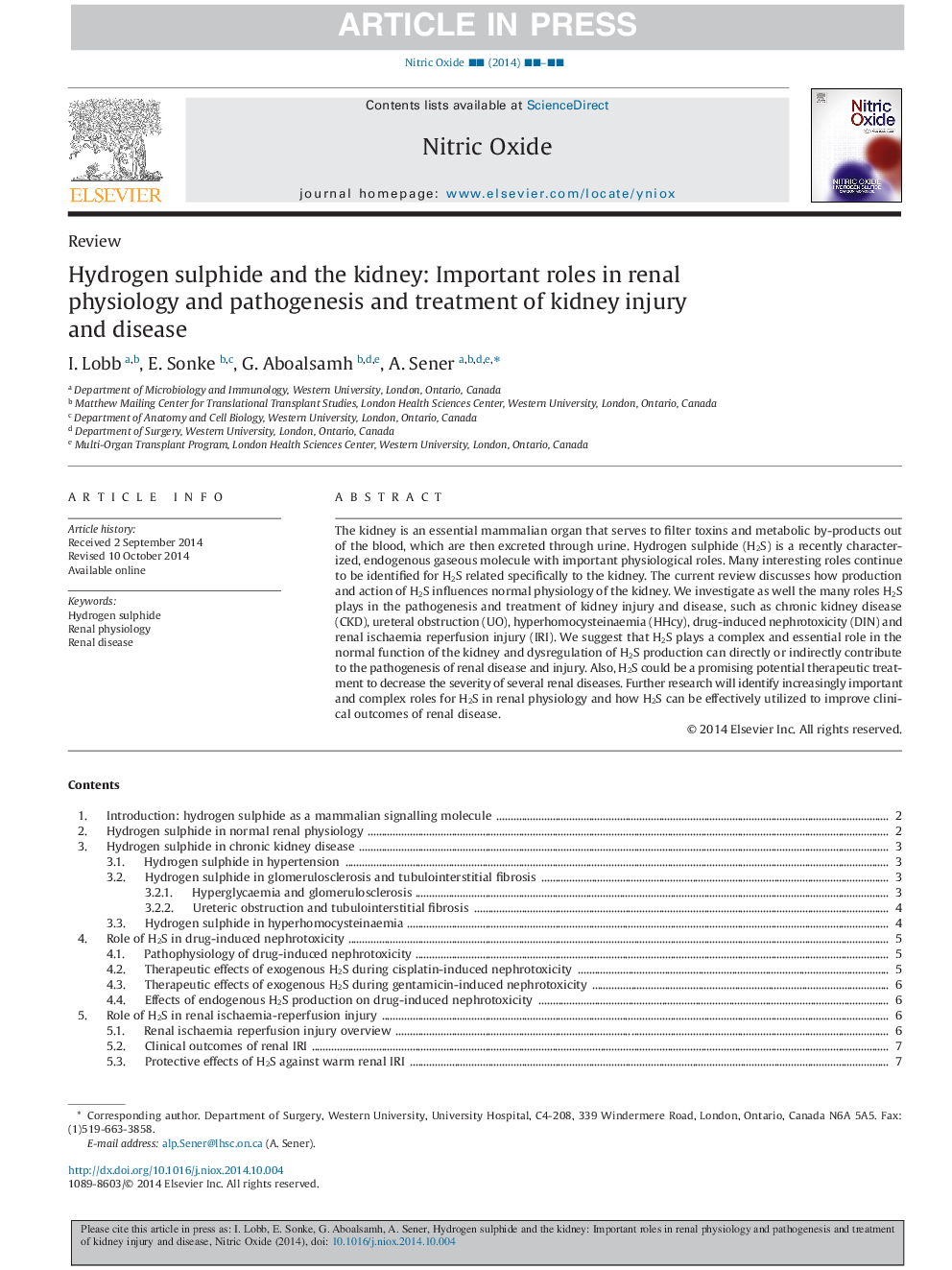| Article ID | Journal | Published Year | Pages | File Type |
|---|---|---|---|---|
| 8345151 | Nitric Oxide | 2015 | 11 Pages |
Abstract
The kidney is an essential mammalian organ that serves to filter toxins and metabolic by-products out of the blood, which are then excreted through urine. Hydrogen sulphide (H2S) is a recently characterized, endogenous gaseous molecule with important physiological roles. Many interesting roles continue to be identified for H2S related specifically to the kidney. The current review discusses how production and action of H2S influences normal physiology of the kidney. We investigate as well the many roles H2S plays in the pathogenesis and treatment of kidney injury and disease, such as chronic kidney disease (CKD), ureteral obstruction (UO), hyperhomocysteinaemia (HHcy), drug-induced nephrotoxicity (DIN) and renal ischaemia reperfusion injury (IRI). We suggest that H2S plays a complex and essential role in the normal function of the kidney and dysregulation of H2S production can directly or indirectly contribute to the pathogenesis of renal disease and injury. Also, H2S could be a promising potential therapeutic treatment to decrease the severity of several renal diseases. Further research will identify increasingly important and complex roles for H2S in renal physiology and how H2S can be effectively utilized to improve clinical outcomes of renal disease.
Related Topics
Life Sciences
Biochemistry, Genetics and Molecular Biology
Biochemistry
Authors
I. Lobb, E. Sonke, G. Aboalsamh, A. Sener,
